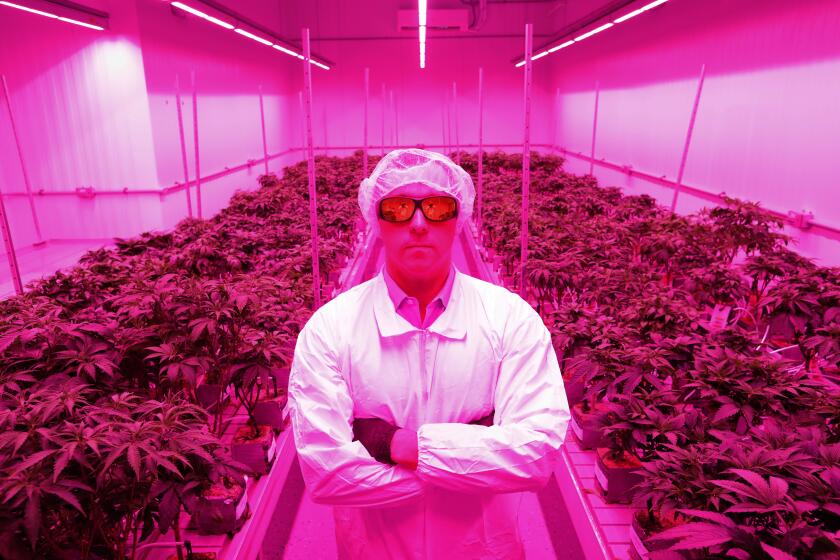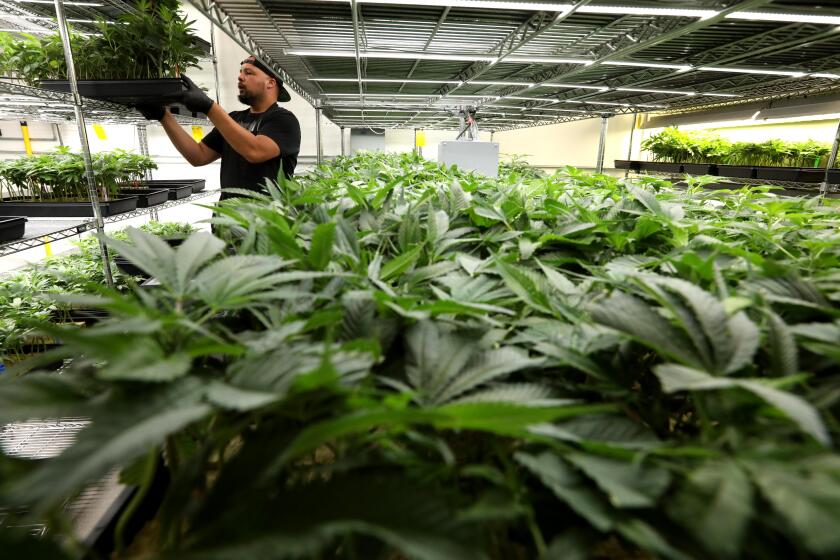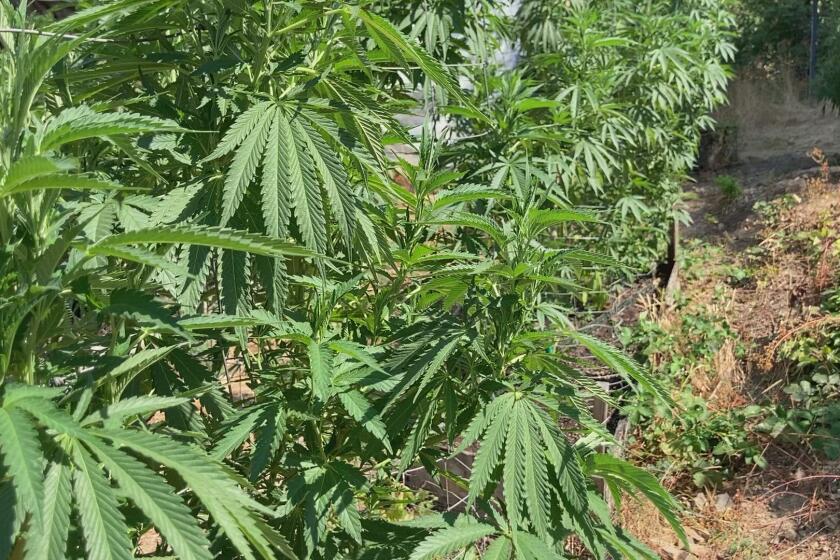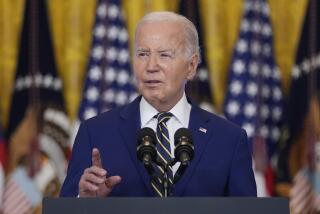Biden pardons thousands convicted on federal marijuana possession charges
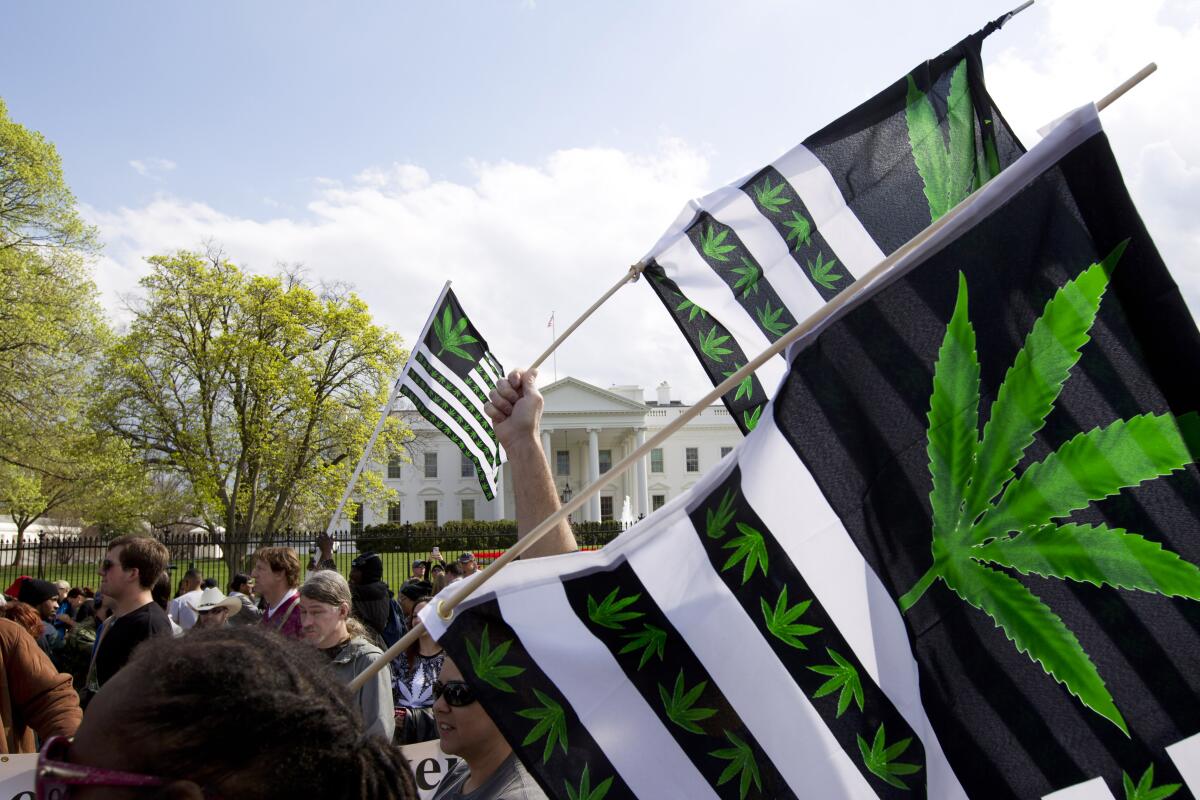
WASHINGTON — President Biden on Thursday pardoned all individuals convicted on federal charges of simple marijuana possession, a move that the White House estimated would affect more than 6,500 people nationwide.
Biden urged all governors to follow his example, and called for a formal review of marijuana’s classification in federal law as a Schedule I drug — the same classification as heroin and LSD, and a stricter classification than fentanyl.
A change to the legal classification of marijuana, although not certain, would be a significant reform, clearing the way for major changes to the federal government’s approach to the drug.
Reclassifying it would be “a big step in the right direction,” said Tianna Mays, a civil rights attorney in Washington. “It would take this down from being a felony, the same as possessing heroin. So we’re hopeful about the steps the Biden administration is taking.”
California legalized medical weed 25 years ago, spurring a nationwide shift. But federal government rules stymie research on marijuana’s potential.
Biden’s actions, which many Democratic activists have been calling for, are the most significant steps he has taken toward reforming America’s drug laws. The moves appear to be timed to boost turnout in next month’s midterm election, which will decide whether the president’s party can hold on to control of Congress.
Black and Latino groups, whose communities are disproportionately affected by the enforcement of drug laws, have been especially outspoken in calling for marijuana decriminalization.
Asked about the timing of the announcement, which comes 33 days ahead of the election, an administration official who briefed reporters on the plan said that Biden was looking to fulfill a campaign promise after Congress failed to take any action.
“As I said when I ran for president, no one should be in jail just for using or possessing marijuana,” Biden said in a White House video on his plan, which he also laid out in a series of tweets.
“It’s legal in many states, and criminal records for marijuana possession have led to needless barriers to employment, to housing and educational opportunities,” Biden continued. “And that’s before you address the racial disparities around who suffers the consequences. While white and Black and brown people use marijuana at similar rates, Black and brown people are arrested, prosecuted and convicted at disproportionally higher rates.”
Joshua Ulibarri, a Democratic pollster who focuses on Latinos, had viewed Biden’s previous inaction on marijuana as a missed opportunity to solidify his standing with Latino voters.
“This is another step showing this president not only gets it done but evolves,” he said. “I think it not only delivers justice but will help deliver vulnerable Democratic seats in November.”
Biden did not announce the marijuana reforms in person. Instead, the White House released the news while he was in upstate New York promoting IBM’s investment in a plant that will make semiconductors.
Eric Altieri, the executive director of NORML, an organization that backs full legalization of marijuana, said in a statement that Biden’s actions were “long overdue,” and urged the president to work with Congress to further loosen the nation’s cannabis laws.
“Since 1965, nearly 29 million Americans have been arrested for marijuana-related violations — for activities that the majority of voters no longer believe ought to be a crime,” Altieri said.
In 1996, California voters legalized medical marijuana. Its influence continues to be felt today.
The Democrats who have been the most outspoken about the issue were quick to applaud Biden.
Chuck Rocha, a campaign consultant who advises candidates on Latino outreach, said that Biden “has done more in [two] years than I can ever remember the president doing.” And Pennsylvania Lt. Gov. John Fetterman, a Democratic nominee for U.S. Senate, tweeted a campaign meme: “We did it, Joe.”
The politics of marijuana and criminal justice reform are not clearly divided by party. President Trump, a Republican, enacted the First Step Act to reduce federal prison sentences, a law supported by most GOP lawmakers.
That law rolled back much of the 1994 crime bill — which Biden had co-sponsored as a senator — that stiffened drug sentences and directed millions in federal dollars to police departments, contributing to a major increase in the nation’s incarceration rate.
California’s legalization of recreational cannabis in 2016 ushered in a multibillion-dollar industry. But many of the promises of legalization have proved elusive.
In addition to their criminal justice and political impact, Biden’s actions are a “massive signal” to the nation’s marijuana sector, said Irina Dashevsky, co-chair of the cannabis law group at the firm Greenspoon Marder.
Even as more states have legalized medical and recreational marijuana use and retail sales, the growing industry has continued to bump up against federal law that makes it difficult for cannabis businesses to use services such as banking and insurance.
Biden’s decisions suggest that “change is acceptable and likely going to happen soon,” Dashevsky said. “That’s huge. Marijuana is still going to be heavily regulated, but we may be moving toward less of a ridiculous situation.”
More to Read
Get the L.A. Times Politics newsletter
Deeply reported insights into legislation, politics and policy from Sacramento, Washington and beyond. In your inbox three times per week.
You may occasionally receive promotional content from the Los Angeles Times.
